Recent Blog Posts
Defending Against Probation Violations in Will County: Consequences, Hearings, and Strategies in 2026
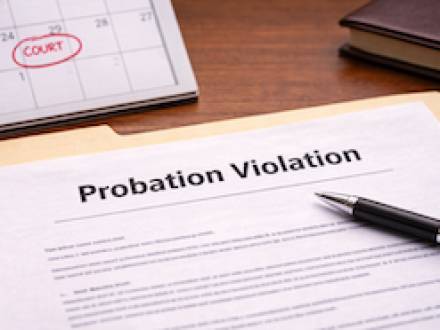 Probation violations in Illinois can turn a second chance into a serious setback, often leading to revoked probation, jail time, or escalated charges that affect your freedom, job, and record long-term. As a Joliet criminal defense attorney with over 20 years of experience, including my tenure as a former Will County prosecutor, I've helped numerous clients navigate probation violation allegations—whether for technical breaches like missed appointments or substantive issues like new offenses—frequently resulting in continued probation, modifications, or outright dismissals of the violation petition.
Probation violations in Illinois can turn a second chance into a serious setback, often leading to revoked probation, jail time, or escalated charges that affect your freedom, job, and record long-term. As a Joliet criminal defense attorney with over 20 years of experience, including my tenure as a former Will County prosecutor, I've helped numerous clients navigate probation violation allegations—whether for technical breaches like missed appointments or substantive issues like new offenses—frequently resulting in continued probation, modifications, or outright dismissals of the violation petition.
At the Law Office of Jack L. Zaremba, we approach these cases with thorough investigation and aggressive advocacy in Will County courts, where judges scrutinize compliance closely. In this blog post, we'll cover what constitutes a probation violation under Illinois law, the potential penalties, your rights during hearings, and effective defense strategies for 2026.
Navigating DUI License Reinstatement Hearings in Will County: Process, Requirements, and Strategies in 2026
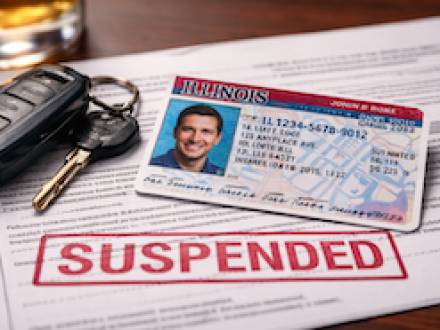 Losing your driver's license after a DUI conviction or revocation can disrupt your life, affecting work, family responsibilities, and daily mobility. In Illinois, reinstatement hearings with the Secretary of State offer a path to regain driving privileges, but the process is complex and often requires compelling evidence of rehabilitation and low public safety risk. As a Joliet criminal defense attorney with over 20 years of experience, including my time as a former Will County prosecutor, I've successfully guided countless clients through these hearings, securing Restricted Driving Permits (RDPs) or full reinstatements to help them move forward.
Losing your driver's license after a DUI conviction or revocation can disrupt your life, affecting work, family responsibilities, and daily mobility. In Illinois, reinstatement hearings with the Secretary of State offer a path to regain driving privileges, but the process is complex and often requires compelling evidence of rehabilitation and low public safety risk. As a Joliet criminal defense attorney with over 20 years of experience, including my time as a former Will County prosecutor, I've successfully guided countless clients through these hearings, securing Restricted Driving Permits (RDPs) or full reinstatements to help them move forward.
At the Law Office of Jack L. Zaremba, we specialize in DUI-related license issues in Will County courts and administrative proceedings, where thorough preparation is key. In this blog post, we'll outline the DUI license reinstatement hearing process, requirements for 2026, common challenges, and effective strategies.
Defending Against Reckless Driving Charges in Will County: Penalties, Consequences, and Strategies in 2025
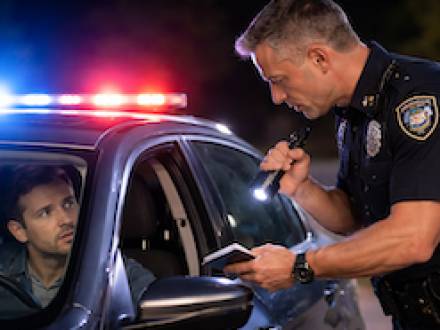 Reckless driving charges in Illinois often arise from aggressive maneuvers, excessive speeding, or road rage incidents that endanger others, leading to criminal consequences that can disrupt your driving privileges, employment, and future opportunities. As a Joliet criminal defense attorney with over 20 years of experience, including my time as a former Will County prosecutor, I've successfully defended numerous clients facing reckless driving and aggravated reckless driving charges, frequently securing reductions, supervisions, or dismissals to minimize impact on their records and licenses. At the Law Office of Jack L. Zaremba, we aggressively handle these traffic-related criminal cases in Will County courts, where police discretion and dashcam evidence play major roles. In this blog post, we'll explore what qualifies as reckless driving under Illinois law, potential penalties, long-term effects, and proven defense approaches for 2025. For related guidance, see our post on aggravated fleeing charges .
Reckless driving charges in Illinois often arise from aggressive maneuvers, excessive speeding, or road rage incidents that endanger others, leading to criminal consequences that can disrupt your driving privileges, employment, and future opportunities. As a Joliet criminal defense attorney with over 20 years of experience, including my time as a former Will County prosecutor, I've successfully defended numerous clients facing reckless driving and aggravated reckless driving charges, frequently securing reductions, supervisions, or dismissals to minimize impact on their records and licenses. At the Law Office of Jack L. Zaremba, we aggressively handle these traffic-related criminal cases in Will County courts, where police discretion and dashcam evidence play major roles. In this blog post, we'll explore what qualifies as reckless driving under Illinois law, potential penalties, long-term effects, and proven defense approaches for 2025. For related guidance, see our post on aggravated fleeing charges .
Defending Against Domestic Violence Charges in Will County: Rights, Penalties, and Strategies in 2025
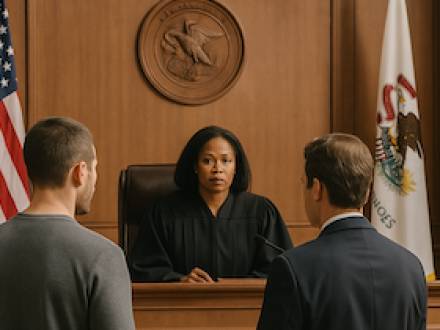 Domestic violence charges in Illinois can arise from heated arguments or misunderstandings, but they carry heavy emotional and legal consequences that can impact your family, job, and record forever. As a Joliet criminal defense attorney with over 20 years of experience, including my time as a former Will County prosecutor, I've defended countless clients against domestic battery, assault, and order of protection violations, often achieving dismissals or reductions to protect their rights and relationships.
Domestic violence charges in Illinois can arise from heated arguments or misunderstandings, but they carry heavy emotional and legal consequences that can impact your family, job, and record forever. As a Joliet criminal defense attorney with over 20 years of experience, including my time as a former Will County prosecutor, I've defended countless clients against domestic battery, assault, and order of protection violations, often achieving dismissals or reductions to protect their rights and relationships.
At the Law Office of Jack L. Zaremba, we handle these sensitive cases with discretion and aggression in Will County courts, where family dynamics play a key role. In this blog post, we'll break down what constitutes domestic violence under Illinois law, penalties, your rights, and effective defense strategies for 2025.
What Constitutes Domestic Violence in Illinois?
Domestic violence encompasses offenses against family or household members (spouses, ex-spouses, dates, children, or cohabitants) under the Illinois Domestic Violence Act (750 ILCS 60). Key charges include:
Defending Against Theft Charges in Will County: Types, Penalties, and Strategies in 2025
 Theft charges in Illinois range from minor shoplifting to major felony cases, but all carry the risk of a criminal record, jail time, and lasting collateral consequences like employment barriers or license suspension. As a Joliet criminal defense attorney with over 20 years of experience, including my time as a former Will County prosecutor, I've successfully defended hundreds of theft cases, often securing dismissals, reductions, or court supervision to keep clients' records clean. At the Law Office of Jack L. Zaremba, we handle every level of theft—from retail theft to felony burglary-related charges—in Will County courts. In this blog post, we'll break down the different types of theft, current penalties, common defenses, and how to protect your future in 2025. For related topics, see our guides on retail theft defense and second chance probation for drug cases .
Theft charges in Illinois range from minor shoplifting to major felony cases, but all carry the risk of a criminal record, jail time, and lasting collateral consequences like employment barriers or license suspension. As a Joliet criminal defense attorney with over 20 years of experience, including my time as a former Will County prosecutor, I've successfully defended hundreds of theft cases, often securing dismissals, reductions, or court supervision to keep clients' records clean. At the Law Office of Jack L. Zaremba, we handle every level of theft—from retail theft to felony burglary-related charges—in Will County courts. In this blog post, we'll break down the different types of theft, current penalties, common defenses, and how to protect your future in 2025. For related topics, see our guides on retail theft defense and second chance probation for drug cases .
Second Chance Probation in Illinois: Eligibility, Benefits, and How It Works in 2025
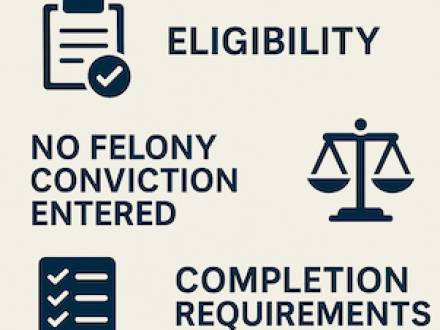 Second Chance Probation offers a vital opportunity for first-time drug offenders in Illinois to avoid a conviction and its long-term consequences, focusing on rehabilitation rather than punishment. As a Joliet criminal defense attorney with over 20 years of experience, including my time as a former Will County prosecutor, I've helped numerous clients secure this probation to keep their records clean and driving privileges intact. At the Law Office of Jack L. Zaremba, we specialize in negotiating Second Chance Probation for eligible cases in Will County courts, often intersecting with driver's license issues from drug-related suspensions. In this blog post, we'll explore what Second Chance Probation entails, eligibility requirements, benefits, and strategies to obtain it in 2025.
Second Chance Probation offers a vital opportunity for first-time drug offenders in Illinois to avoid a conviction and its long-term consequences, focusing on rehabilitation rather than punishment. As a Joliet criminal defense attorney with over 20 years of experience, including my time as a former Will County prosecutor, I've helped numerous clients secure this probation to keep their records clean and driving privileges intact. At the Law Office of Jack L. Zaremba, we specialize in negotiating Second Chance Probation for eligible cases in Will County courts, often intersecting with driver's license issues from drug-related suspensions. In this blog post, we'll explore what Second Chance Probation entails, eligibility requirements, benefits, and strategies to obtain it in 2025.
What is Second Chance Probation in Illinois?
Second Chance Probation, formally known as Section 410 Probation under 720 ILCS 570/410, is a special probation for first-time offenders convicted of possessing small amounts of controlled substances like cannabis (over 30g), cocaine, or heroin. It's a deferred adjudication where you plead guilty but avoid a conviction if you successfully complete probation terms. This program emphasizes treatment and accountability, available in Will County for misdemeanor or Class 4 felony possession charges. For the full statute, refer to the Illinois Compiled Statutes on Probation for Drug Possession .
Understanding Miranda Warnings and Police Questioning in Illinois: Your Rights in 2025
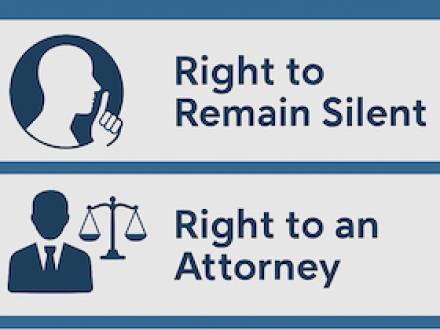 Police questioning can be a critical moment in any criminal investigation, where knowing your rights can make the difference between incriminating yourself and protecting your future. As a Joliet criminal defense attorney with over 20 years of experience, including my time as a former Will County prosecutor, I've advised countless clients on how to handle interactions with law enforcement to avoid self-incrimination. At the Law Office of Jack L. Zaremba, we specialize in defending against charges where police questioning plays a key role, ensuring your constitutional rights are upheld in Will County courts. In this blog post, we'll explore when Miranda warnings are required, how to assert your rights during questioning, common scenarios, and strategies to safeguard yourself in 2025. For more on related defenses, check our guides on resisting arrest charges and defending burglary charges .
Police questioning can be a critical moment in any criminal investigation, where knowing your rights can make the difference between incriminating yourself and protecting your future. As a Joliet criminal defense attorney with over 20 years of experience, including my time as a former Will County prosecutor, I've advised countless clients on how to handle interactions with law enforcement to avoid self-incrimination. At the Law Office of Jack L. Zaremba, we specialize in defending against charges where police questioning plays a key role, ensuring your constitutional rights are upheld in Will County courts. In this blog post, we'll explore when Miranda warnings are required, how to assert your rights during questioning, common scenarios, and strategies to safeguard yourself in 2025. For more on related defenses, check our guides on resisting arrest charges and defending burglary charges .
Defending Against DUI Charges in Will County: A Comprehensive Guide for 2025
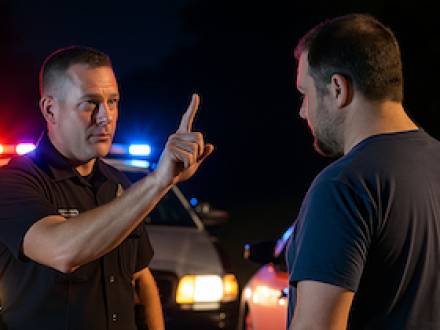 Driving Under the Influence (DUI) charges in Illinois remain one of the most common criminal offenses, with severe impacts on your freedom, finances, and driving privileges. As a Joliet criminal defense attorney with over 20 years of experience, including my time as a former Will County prosecutor, I've defended countless clients against DUI allegations, often achieving reductions, dismissals, or favorable plea deals. At the Law Office of Jack L. Zaremba, we focus on aggressive representation for DUI cases in Will County, where enforcement is rigorous on highways like I-80 and local roads. In this blog post, we'll cover DUI definitions under Illinois law, penalties, common defenses, and how to protect your license in 2025. For related topics, explore our posts on understanding misdemeanor offenses and leaving the scene of an accident .
Driving Under the Influence (DUI) charges in Illinois remain one of the most common criminal offenses, with severe impacts on your freedom, finances, and driving privileges. As a Joliet criminal defense attorney with over 20 years of experience, including my time as a former Will County prosecutor, I've defended countless clients against DUI allegations, often achieving reductions, dismissals, or favorable plea deals. At the Law Office of Jack L. Zaremba, we focus on aggressive representation for DUI cases in Will County, where enforcement is rigorous on highways like I-80 and local roads. In this blog post, we'll cover DUI definitions under Illinois law, penalties, common defenses, and how to protect your license in 2025. For related topics, explore our posts on understanding misdemeanor offenses and leaving the scene of an accident .
Defending Against Burglary Charges in Will County: Penalties and Strategies in 2025
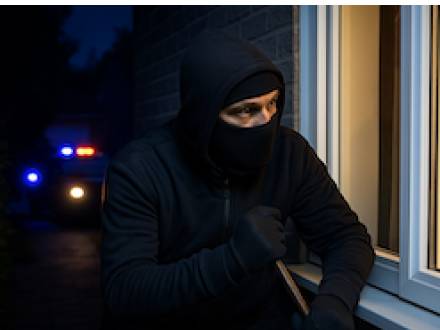 Burglary charges in Illinois can carry severe consequences, transforming a momentary lapse in judgment into a life-altering felony conviction. As a Joliet criminal defense attorney with over 20 years of experience, including my time as a former Will County prosecutor, I've successfully defended clients against burglary allegations, often reducing charges or securing dismissals. At the Law Office of Jack L. Zaremba, we specialize in handling burglary cases that frequently intersect with theft, drug offenses, or juvenile matters in Will County. In this blog post, we'll explore what constitutes burglary under Illinois law, potential penalties, common scenarios, and effective defense strategies for 2025. For related topics, see our guides on felony crimes in Joliet and expungement of criminal records .
Burglary charges in Illinois can carry severe consequences, transforming a momentary lapse in judgment into a life-altering felony conviction. As a Joliet criminal defense attorney with over 20 years of experience, including my time as a former Will County prosecutor, I've successfully defended clients against burglary allegations, often reducing charges or securing dismissals. At the Law Office of Jack L. Zaremba, we specialize in handling burglary cases that frequently intersect with theft, drug offenses, or juvenile matters in Will County. In this blog post, we'll explore what constitutes burglary under Illinois law, potential penalties, common scenarios, and effective defense strategies for 2025. For related topics, see our guides on felony crimes in Joliet and expungement of criminal records .
What Constitutes Burglary in Illinois?
Under 720 ILCS 5/19-1, burglary occurs when someone knowingly enters or remains in a building, vehicle, or structure without authority, with intent to commit theft or another felony. Residential burglary (entering a dwelling) is a Class 1 felony, while standard burglary is Class 2. In Will County, these charges often arise from break-ins at homes, cars, or businesses in areas like Joliet, where economic pressures or substance issues may play a role. For the full statute, refer to the Illinois Compiled Statutes on Burglary .
Defending Against Resisting Arrest Charges in Will County: Penalties and Strategies in 2025
 Resisting arrest charges in Illinois can arise from tense encounters with law enforcement, often complicating other criminal or traffic cases and leading to severe consequences. As a Joliet criminal defense attorney with over 20 years of experience, including my time as a former Will County prosecutor, I've defended numerous clients against these allegations to protect their rights and minimize impacts. At the Law Office of Jack L. Zaremba, we specialize in challenging police conduct in resisting cases, which frequently intersect with DUI, domestic violence, or traffic stops. In this blog post, we'll cover what constitutes resisting arrest, potential penalties, common scenarios in Will County, and effective defense strategies for 2025.
Resisting arrest charges in Illinois can arise from tense encounters with law enforcement, often complicating other criminal or traffic cases and leading to severe consequences. As a Joliet criminal defense attorney with over 20 years of experience, including my time as a former Will County prosecutor, I've defended numerous clients against these allegations to protect their rights and minimize impacts. At the Law Office of Jack L. Zaremba, we specialize in challenging police conduct in resisting cases, which frequently intersect with DUI, domestic violence, or traffic stops. In this blog post, we'll cover what constitutes resisting arrest, potential penalties, common scenarios in Will County, and effective defense strategies for 2025.
What Constitutes Resisting Arrest in Illinois?
Under 720 ILCS 5/31-1, resisting arrest occurs when someone knowingly resists or obstructs a peace officer performing an authorized act, such as fleeing, pulling away, or providing false information during an arrest. Simple resisting is a Class A misdemeanor, while aggravated resisting—causing injury, using a weapon, or fleeing by vehicle—escalates to a Class 4 or 3 felony. In Will County, these charges often stem from traffic stops on I-80, domestic calls, or public disturbances in Joliet, where actions like questioning officers or minor struggles can be misinterpreted as resistance.

















